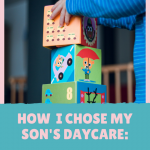 October is Domestic Violence Awareness month. Not having seen much about domestic violence come out of the Muslim community, I decided it was time to share my story. I chose to write this essay anonymously to protect my children from the pain of my experience and also out of a sense of shame for my perpetrator. He is the father of my daughter and even after all these years I do not want to expose or humiliate him. Whether this is my weakness or strength I will leave for Allah (swt) to decide.
October is Domestic Violence Awareness month. Not having seen much about domestic violence come out of the Muslim community, I decided it was time to share my story. I chose to write this essay anonymously to protect my children from the pain of my experience and also out of a sense of shame for my perpetrator. He is the father of my daughter and even after all these years I do not want to expose or humiliate him. Whether this is my weakness or strength I will leave for Allah (swt) to decide.
I remember the first slap like it happened just this moment. I saw the hand raised but before I could blink it bore across my face, knocking my head to the far right. If there was pain, I wasn’t able to feel it over the shock.
My senses were reeling. Because I had never been hit before, because I didn’t see it coming and didn’t know why he was angry, because I had known him for three years and never seen this side of him, and because we had only been married a month.
I know I initially screamed and lunged at him to defend myself, but my screams died as he beat me down to the floor and kicked me over and over in my stomach and in my back. I knew my in-laws, with whom we shared a small apartment, could hear my cries and whimpering. There were five of them living there, his parents, his two brothers, and his younger sister. I kept expecting someone to come help me or at least see what was happening.
Long after he had left the room and I still lay on the floor, I was still waiting for someone to come but no one did. After some time I dragged myself to my bed, the bed which I had picked out with my family not long ago as part of my wedding dowry, buried myself in the blankets and eventually feel asleep, exhausted from the tears and the pain.
When I woke a few hours later my head was heavy like my skull had been loaded with lead. My body was sore and bruised and before my eyes I saw stars when I looked in a particular direction. It would be a couple of years before those stars disappeared and it would be another month before I learned I was pregnant during this assault.
My mouth was parched and I needed pain killers desperately. I listened hard to see if I could hear anyone in the house and when it seemed like no one was there, I timidly left my room towards the kitchen. The apartment was mostly dark, meaning they were out, but before I reached the kitchen I saw my mother-in-law sitting in the dark in the living room.
She looked at me with interest, quietly searching my face. My immediate thought was, “Oh she doesn’t know what happened!” The tears began again and I went and sat next to her. I told her that her son had beat me badly, expecting her to hold her new and only daughter-in-law close, to get angry at him, to comfort me. She considered me carefully and said, “If I had any say, he would beat you every day.”
This was fifteen years ago, but the sting of her response has stayed with me. I quietly left her, got a glass of water and two Tylenol, returned to my room, and never spoke of what happened with anyone. Not with my parents, who had been uncomfortable with this marriage but relented with my insistence; not with my younger sister, who was fiercely independent and looked up to me; not with my friends, who saw me only as a confident, funny, happy, smart young woman.
The shame was overwhelming. I didn’t understand how this had happened to me. I was raised in a family in which women were fearless and feminist, had never seen my father raise his hand on my mother, and had always thought if someone hit me, I’d never take it. But I took it. I took it for a couple of years. It was only when my daughter was around 9 months old and I was holding her when he came at me that I fought back unrelentingly. That was the last time he ever hit me. I wish I had fought back earlier. The fact that I had become a victim of domestic violence, a statistic I never imagined I would add to, weighed heavily on me. It destroyed my confidence, it killed my soul. Even as I worked towards my graduate degree while working part-time and taking care of family and home, I felt less and less like whom I had always been. I felt worthless, embarrassed of myself, ashamed tremendously of my secret. After I left the marriage I finally did confide in some people, but again with a great sense of humiliation. I knew intellectually that no part of the blame could possibly be mine, but emotionally I carried the guilt of it instead of my husband.
Over time the guilt subsided as I was able to move on, build my career, and acknowledge that my ex-husband had a severe problem. This problem would continue to plague him, as his second and third wife eventually left him for the same reasons. Before we had married, and while I was in college, he had shared with me the pain of growing up watching his father abuse his mother. It’s true what they say about cycles of violence and in some respect he was a victim of his upbringing too.
I decided to write about this now, after all this time, because over the years I have heard many similar stories from Muslim women who, like me, did not fit the profile of a domestic violence victim. And in this time I realized that there is a deep silence in our community about abuse, a chosen ignorance, a veil over the fact that we are also part of the greater epidemic of domestic violence. I wrote this because even as our faith does not tolerate abuse of any kind and our beloved Prophet (peace be upon him) warned Muslim men repeatedly to be mindful of their duty towards the women in their care, the very same men sometimes use the very same faith to sanction their violence in the home. I wrote this mostly because I want everyone to understand that if you are not a victim of domestic violence, someone you know is. It could be the professional, brilliant woman you work with, the sweet friend you have known for years, your bubbly little sister. But you know someone who is suffering violence at home, statistically this is a certainty.
I am asking our scholars and our imams, who are custodians of the community’s faith, to persistently and unequivocally forbid domestic violence and to educate our men about a masculinity that protects instead of hurts. I am asking my brothers in faith to have these conversations amongst themselves, to help the men who need help, and to raise sons mindful of the gentle ways of our Prophet (peace be upon him). And I am asking my sisters in faith to look for signs in other sisters, to create programs of support, and to demand this issue be given the attention it merits by our mosques and communities. I was blessed to be able to leave the situation and gain my confidence and my identity back. Many women don’t get this chance. They suffer in defeat and humiliation, end up battered, or end up dead. I pray that we finally begin raising our daughters to understand that they are never deserving of violence and that they should never tolerate abuse. Teaching our girls when it is time to leave without guilt or shame is imperative upon us. If we are unable to stop the hands of perpetrators, we can surely refuse to raise victims.
There is support. Here are just a few outstanding resources with a wealth of information and assistance for women suffering abuse:
“Peaceful Families Project is a national organization devoted to ending domestic violence in Muslim families by facilitating awareness workshops for Muslim leaders and communities, providing cultural sensitivity training for professionals, conducting research and developing resources.”
Asian and Pacific Islander Institute on Domestic Violence
“The API Institute on Domestic Violence is a national resource center on gender-based violence against Asians, Native Hawaiians and Pacific Islanders. We analyze critical issues, provide technical assistance and training, conduct research, and inform public policy.”
Directory of Domestic Violence Programs Serving Muslim Communities
This directory has been compiled by a joint collaboration between Asian and Pacific Islander Institute and Peace Families Project organization.











